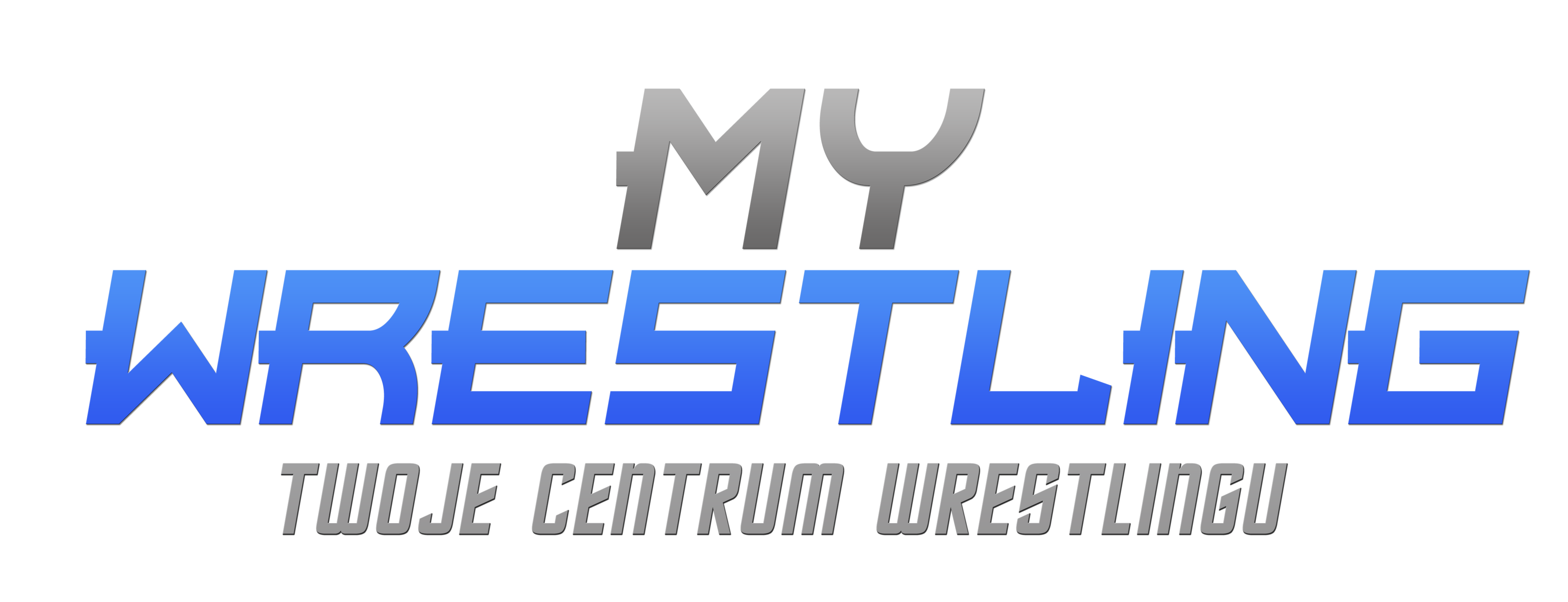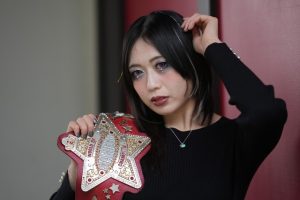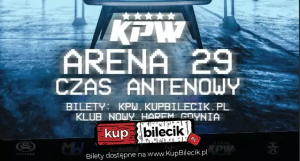Jimmy Korderas: Wywiad dla MyWrestling

Demetrius Korderas znany jako Jimmy Korderas, to utytułowany profesjonalny sędzia wrestlingowy, który przez ponad 22 lata pracował w federacji WWE (1987-2009). Swoją przygodę z wrestlingiem rozpoczął w 1985 roku. Po niespełna dwóch latach działalności w branży stał się bardzo ważną postacią, co za skutkowało transferem do największej firmy wrestlingowym. Wywiad dostępny jest w wersji polskojęzycznej oraz angielskojęzycznej.
Mateusz: Dziękuję za wywiad, Jim. Jak się masz?
Jimmy: Cześć Mateusz. Jak się masz? Moja żona jest w połowie Polką, więc pomaga mi napisać tę część. Dziękuję, że pomyślałeś o mnie podczas tego wywiadu.
Mateusz: Może na początek, dla fanów którzy ”mogli nie mieć z tobą styczności”, mógłbyś opisać kilka informacji dotyczących twojej osoby?
Jimmy: Jestem zwykłym facetem, który został pobłogosławiony możliwością bycia częścią wspaniałej branży. Zawsze staram się patrzeć na jasną stronę wszystkiego i staram się być pozytywną postacią. W Kanadzie nazywamy to szklanym w połowie pełnym facetem.
Mateusz: W jaki sposób dowiedziałeś się o wrestlingu w Kanadzie?
Jimmy: W młodym wieku zauważyłem w telewizji i natychmiast mnie to wciągnęło.
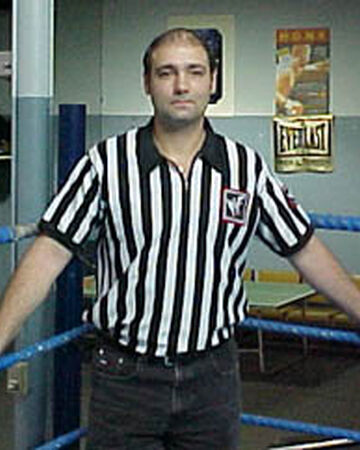
Mateusz: Jakie są twoje pierwsze wspomnienia związane z wrestlingiem?
Jimmy: Moje pierwsze wspomnienia z wrestlingu, gdy jechałem do Varsity Stadium tutaj w Toronto z moim najlepszym przyjacielem oraz tatą. Co za noc. Wymknęliśmy się z tanich miejsc na te obok ringu. To była wspaniała noc!
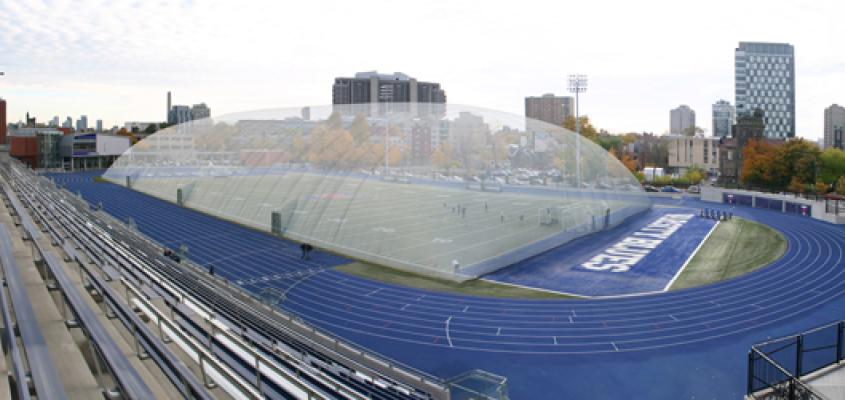
Mateusz: W przeszłości pracowałeś jako kierowca dla Elio Zarlenga. Jak wspominasz ten okres w swoim życiu?
Jimmy: Elio był tym, który zatrudnił mnie przez Jacka Tunneya, więc pracowałem z nim. Staliśmy się naprawdę dobrymi przyjaciółmi i podobała mi się współpraca z nim. Pamiętam, że był to początek tego, co okazało się ponad 30-letnim przewoźnikiem po branży wrestlingowej, w której właściwie dorastałem. Nie zamieniłbym ani chwili. Uwielbiałem każdą minutę, nawet w trudnych czasach.


Mateusz: Jakim sędzią jesteś? Heel, face, tweener? Co sprawia Ci największą przyjemność z pracy na ringu?
Jimmy: Sędzia nigdy nie powinien być heelem, facem lub tweenerem. Sędzia powinien traktować każdy pojedynek, jak prawdziwe wydarzenie sportowe, mimo iż wie, że jest to rozrywka sportowa. Jedyny raz, kiedy sędzia powinien odgrywać jakiś charakter, jest dany storyline. W przeciwnym razie powinien postępować zwyczajnie. Muszę powiedzieć, że największą przyjemnością dla mnie są podziękowania od wrestlerów za dobrze wykonaną pracę.
Mateusz: W latach 80/90 przeprowadziłeś się do Stanów Zjednoczonych. Dlaczego podjąłeś taką decyzję?
Jimmy: Właściwie to nie przeprowadziłem się do Stanów Zjednoczonych. Zawsze mieszkałem w Kanadzie, ale pracowałem głównie w USA. Obszar The Greater Toronto zawsze był moim domem.
Mateusz: Skąd wzięła się twoja pasja do wrestlingu? Warto wspomnieć, że nie przegapiłeś żadnego eventu w MLG organizowanego przez WWE.
Jimmy: Od pierwszego momentu, kiedy zobaczyłem wrestling wiedziałem, że mi się podoba, ale im bardziej go oglądałem, to jeszcze mocniej go pokochałem. Wiedziałem, że pewnego dnia chcę być częścią tego. Nie byłem pewien, w jaki sposób, ale wiedziałem, że chcę być w branży. Nie chcę Cię poprawić, ale to MLG (Maple Leaf Gardens w Toronto) – nie przegapiłem żadnego wydarzenia, ani PPV, kiedy byłem wystarczająco duży, by iść tam sam.

Mateusz: Pracowałeś między innymi w Smash Wrestling, ROH i WWE, gdzie poznałeś Vince’a McMahona i Earla Hebnera. Czy możesz coś o nich powiedzieć? Jak wyglądała twoja praca dla wspomnianych firm? Czy ktoś się z tobą kontaktował?
Jimmy: Praktycznie ze wszystkimi osobami, z którymi pracowałem jestem w dobrych stosunkach. Earl był świetnym nauczycielem i przyjacielem. Był moim mentorem i prawie nauczył mnie walczyć. Mr. McMahon również był wspaniałym nauczycielem. Nauczyłem się od niego więcej o branży niż od kogokolwiek. Jedną z pierwszych rzeczy, które powiedział mi, gdy byłem dzieckiem, to że muszę być „gąbką” i nigdy nie przestawać się uczyć , nie bać się zadawać pytań.


Mateusz: Dlaczego miałeś tak dobry kontakt z branżą wrestlingową? Jak do tego doszło?
Jimmy: Miałem szczęście, że zaprzyjaźniłem się z Elio Zarlengą, jak wspomniałem powyżej. Był on mi bardzo pomocny w osiągnięciu obranych celów w tej branży. Jestem mu wdzięczny.
Mateusz: W jaki sposób nabyłeś doświadczenia w pracy, jako sędzia?
Jimmy: Zdobyłem doświadczenie, robiąc to po staremu. Słuchałem, uczyłem się i zadawałem pytania weteranom. Pracowałem nad podstawami. Kiedy zacząłem, nie było Performance Center. Podczas pracy musiałem uczyć się z własnego doświadczenia oraz coachingu.
Mateusz: Pracowałeś w WWE w USA. Czym się tam zajmowałeś? Co sądzisz o WWE?
Jimmy: Trochę wszystkim. Od sędziowania, montowania ringu, sprzedaży towarów, zarządzania produkcją, utrzymywania porządku, wielu zadań. Wspieram i zawszę będę się cieszyć z pobytu w WWE. Nie oznacza, to że nie trzeba ulepszyć ich produktu. Zawsze liczę na ich sukces, a także sukces pozostałych firm wrestlingowych.
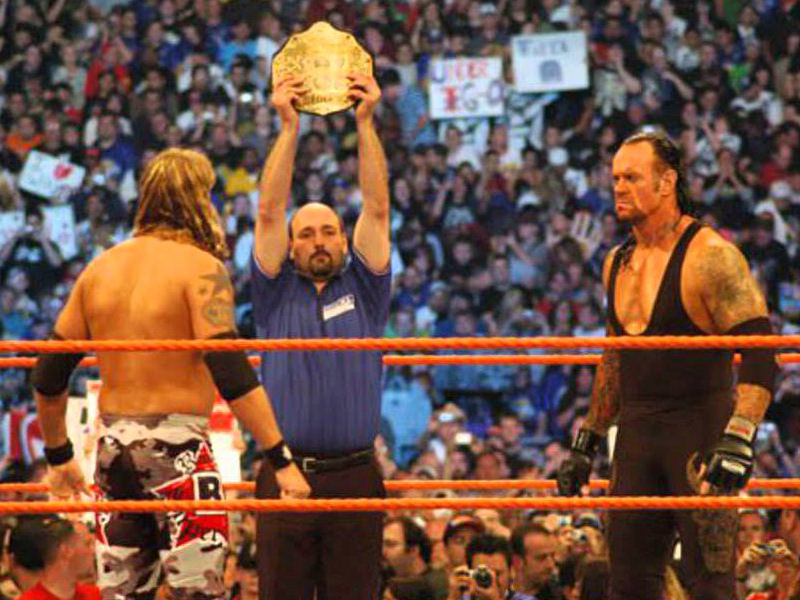
Mateusz: Jaka atmosfera panuje w WWE?
Jimmy: Non stop Go Go Go. Zachęcają do dobrej zabawy, ale także przypominają, że masz pracę do wykonania i liczą na to, że wykonasz ją dobrze.
Mateusz: Czy dużo osób w Kanadzie ogląda WWE?
Jimmy: Oczywiście, to jest bardzo popularne tutaj w Kanadzie.
Mateusz: Dlaczego opuściłeś WWE? Czy podano powód twojego zwolnienia?
Jimmy: Wszystko, to zostało wyjaśnione w mojej książce Three Count: My Life in Stripes as a WWE Referee, gdzie otrzymasz odpowiedź na swoje pytanie. Potrzebowała mnie moja rodzina, więc nadszedł właściwy czas.
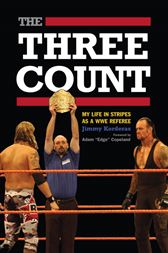
Mateusz: Co sądzisz o sposobie sędziowania w AEW, Impact Wrestling i WWE?
Jimmy: Szczerze mówiąc wolę sposób sędziowania w WWE niż w AEW, głównie dlatego, że sędziowie w AEW są bardziej zauważalni. Sędzia powinien pozostać niewidoczny do czasu, aż zostanie zauważony. W Impact Wrestling sędziowie wykonują dobrą robotę.
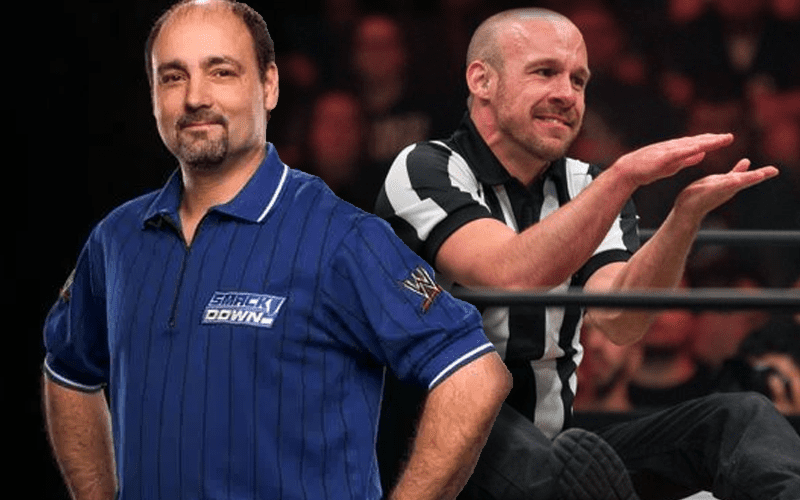
Mateusz: Co sądzisz o kwietniowych zwolnieniach w WWE? Czy, to był dobry ruch?
Jimmy: Nigdy nie podobały mi się zwolnienia. Jednak nie krytykuję decyzji biznesowych, ponieważ często nie mamy wiedzy na temat tego, co się dzieje, ani nie wiemy, dlaczego takie decyzje zostały podjęte. Po prostu współczuję tym wszystkim osobom, które zostały zwolnione.
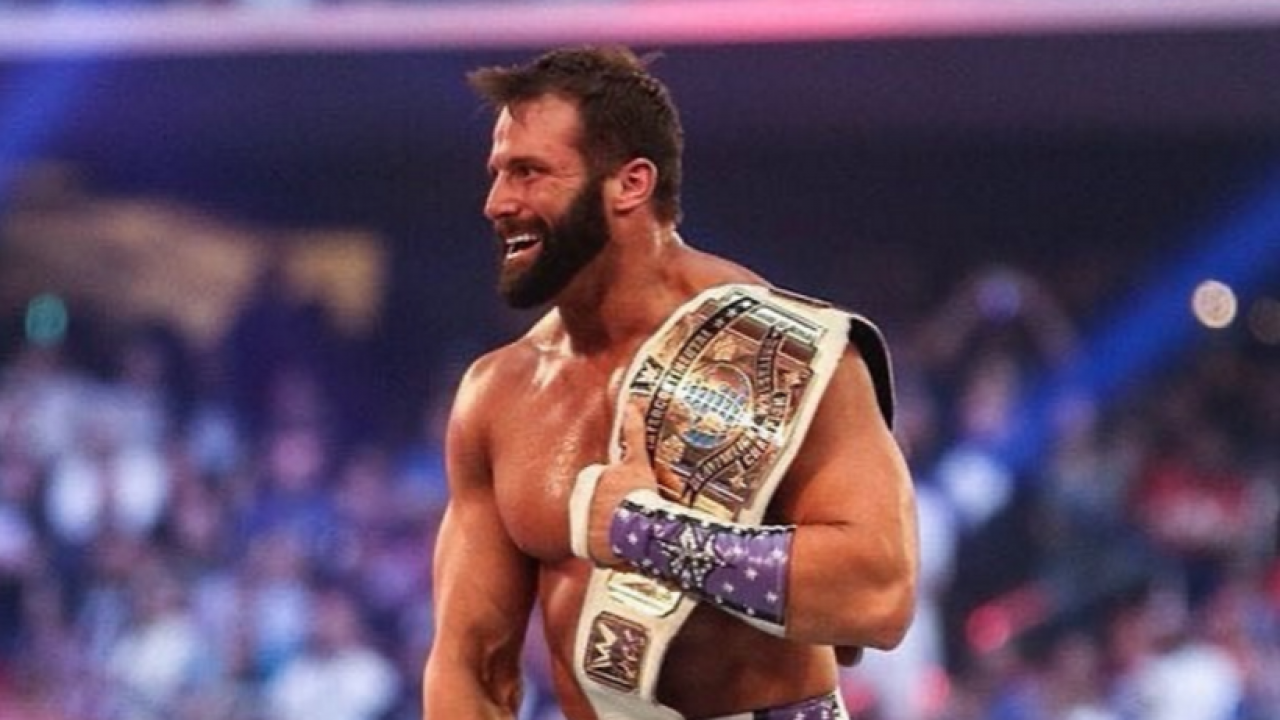
Mateusz: Co możesz powiedzieć o Jimmym Harcie – WrestleMania IV? Wiem, że tam byłeś i zostałeś zaatakowany.
Jimmy: Uderzył mnie megafonem, co właściwie nie było złe, ale kiedy upadłem na matę, uderzyłem się w brodę i przewróciłem. Do dziś wiele osób myśli, że Jimmy Hart znokautował mnie, ale tak naprawdę zrobiłem, to sam. HAHAHAH !
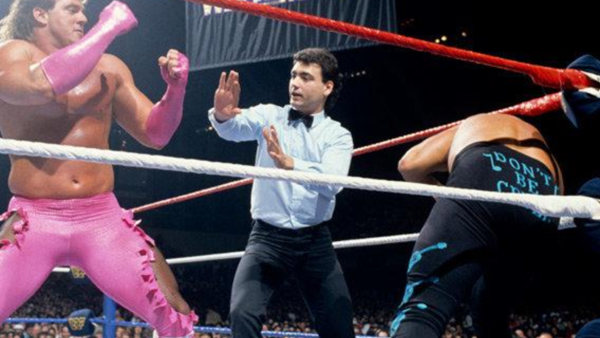

Mateusz: Według Ciebie, który NXT Superstar będzie wielką gwiazdą WWE w 2020 roku?
Jimmy: Według mnie Adam Cole ma wszystko co potrzebne, aby być gwiazdą. Miejcie oko również na Keitha Lee.
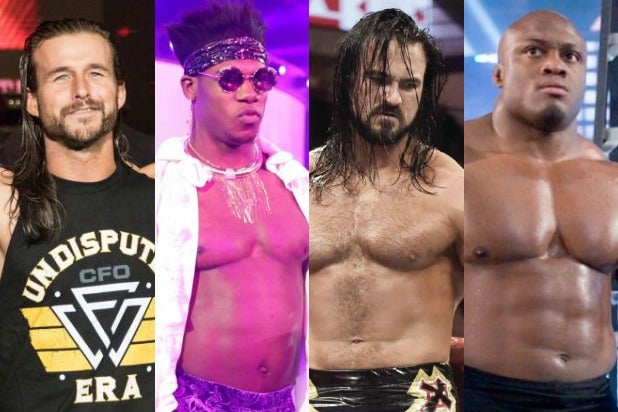
Mateusz: Czy mógłbyś pracować w WWE jako trener?
Jimmy: Myślę, że mógłbym, gdyby pojawiła się taka okazja w odpowiednim momencie.
Mateusz: Podsumowując, w przeszłości byłeś sędzią w wielu niezależnych federacjach wrestlingowych. Pytanie brzmi: W jaki sposób jeden człowiek mógł zrobić tak wiele niesamowitych rzeczy? Czy próbowałeś przez cały czas iść naprzód i nie poddawać się?
Jimmy: Miałem szczęście pracując dla największej firmy wrestlingowej na świecie, która otworzyła mi wiele drzwi. Podczas pracy dla WWF /WWE nawiązałem wiele kontaktów w branży wrestlingowej oraz poza nią. Chociaż istnieje wiele firm, to WWE jest największe. Dla wielu z nas było, to bractwo, w którym staraliśmy się dbać o siebie.
Mateusz: Czy praca w Korakuen Hall różni się od pracy w normalnej hali?
Jimmy: W pewnym sensie jest, to legendarne miejsce w Japonii, w którym występowało wiele legend wrestlingu, co sprawia, że dla ludzi udział w pokazie jest zaszczytem.
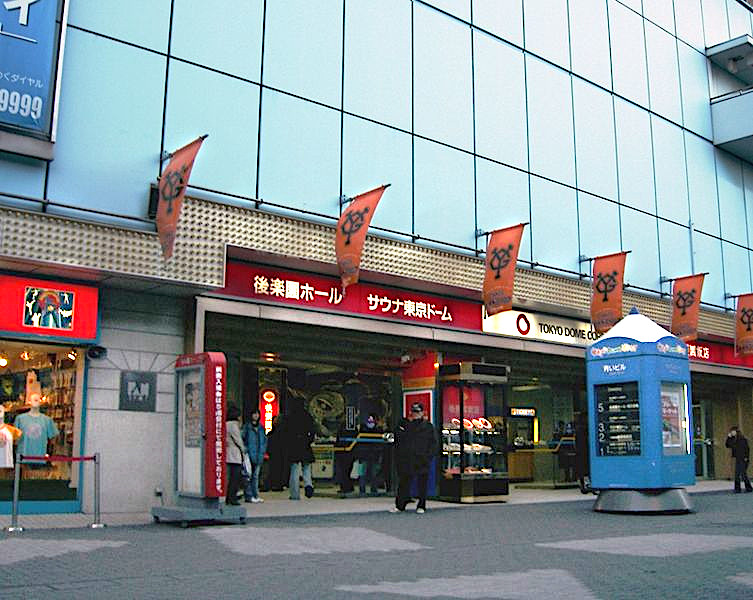
Mateusz: Jaka jest różnica pomiędzy amerykańskim, a kanadyjskim wrestlingiem?
Jimmy: Nie ma żadnej różnicy. Sądzę, że można po prostu ugrupować Kanadę jako North American Wrestling. HaHaHa!
Mateusz: Który moment wspominasz najlepiej?
Jimmy: Sędziowanie main eventu WrestleManii 24 pomiędzy The Undertakerem, a Edgem, głównie dlatego, że zostałem poproszony przez nich ich o możliwość sędziowania.
Mateusz: Aktualnie pracujesz w programie telewizyjnym Aftermath. Opowiedz coś o tym.
Jimmy: Aftermath jest częścią Sportsnet family of shows. Po opuszczeniu WWE musiałem zająć się inną karierą, a dzięki mojej dobrej przyjaciółce, Arda Ocal udało mi się dołączyć do Aftermath, które pierwotnie nosiło nazwę Right After Wrestling. To łączy moje dwie pasje, telewizję oraz wrestling. Hahah! Jestem teraz analitykiem wrestlingowym Sportsnet, co jest fajnym sposobem, ponieważ mogę mówić, że wiem o czym mówię Hahahaha!

Mateusz: Co sądzisz na temat intergender wrestlingu? Czy popierasz ten pomysł?
Jimmy: Trudne pytanie, na które nie ma właściwej odpowiedzi. Wszystko zależy od sposobu prezentacji.
Mateusz: W szatni poznałeś wielu wrestlerów, kto był największym znanym nazwiskiem?
Jimmy: Wybierz: Hulk Hogan, Undertaker, Ric Flair itp. Prawie każde wielkie nazwisko w Sports Entertainment.
Mateusz: Aktualnie żyjemy w trudnym okresie. Jak COVID-19 wpływa na wrestlerów?
Jimmy: Nie dotyczy, to mnie, ale bardzo trudno im występować bez publiczności. Nie mogę sobie wyobrazić jak się czuje wrestler, który musi ćwiczyć bez obecności fanów. Mogę sobie tylko wyobrazić, ponieważ oglądam wrestling w telewizji, tak jak ty.
Mateusz: Czy wrestling wróci do normalności?
Jimmy: Minie wiele czasu, zanim wrócimy do normalnego funkcjonowania.
Mateusz: Czy masz jakieś hobby poza wrestlingiem?
Jimmy: Spędzam jak najwięcej czasu ze swoją rodziną, nadrabiając stracony czas, kiedy podróżowałem przez 250 dni w roku pracując dla WWF/WWE. Lubię także pisać, grać w golfa oraz gotować #reftochef.
Mateusz: Co jest najtrudniejszego w byciu sędzią?
Jimmy: Najtrudniejszą rzeczą w byciu sędzią jest unikanie przeszkód jednocześnie być wystarczająco blisko, aby wrestler mógł powiedzieć swoją historię. Innymi słowy, bądź niewidoczny, dopóki nie musisz być widoczny, nie rozpraszaj się.
Mateusz: Co możesz poradzić osobom, które chcą rozpocząć karierę sędziego?
Jimmy: Najlepszą rzeczą dla osób które chcą być sędzią jest zbadanie tego, co robili niektórzy. Według mnie warto obejrzeć Tommy’ego Younga, Charlesa Robinsona, Mike’a Chiodę, Dave’a i Earla Hebnerów, Briana Hebnera.

Mateusz: Czy trenujesz kogoś?
Jimmy: W przeszłości trenowałem kilka osób, a obecnie udzielam porad osobom, które mnie pytają.
Mateusz: W Polsce funkcjonują dwie federacje wrestlingowe KPW i MZW. Czy spotkałeś kogoś o polskich korzeniach?
Jimmy: Spotkałem kilka legend takich, jak Stan Kowalski, czy Ivan Putski, ale nigdy nie miałem przyjemności z nimi współpracować.
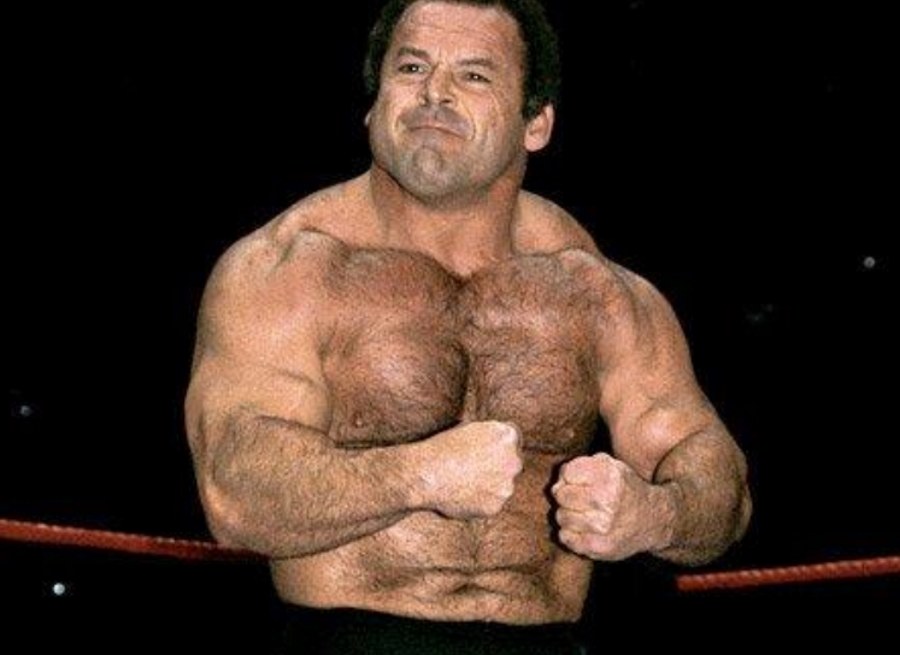

Mateusz: Jakie są twoje plany?
Jimmy: Kontynuować swoją pracę w telewizji i mam nadzieję, że rozszerzymy nasz program Aftermath na innych platformach.
Mateusz: Czy jest coś, co chciałbyś powiedzieć czytelnikom MyWrestling?
Jimmy: Mam nadzieję, że wszyscy mają się dobrze i zachowują odpowiednie bezpieczeństwo w tym niepewnym czasie. Wspierajcie profesjonalny wrestling i pamiętajcie, że to rozrywka, traktujcie ją tak. Bądźcie dla siebie mili. Dziękuję wszystkim czytelnikom MyWrestling. Mam nadzieję, że podobała się Wam nasza rozmowa.
Mateusz: Dziękuję za poświęcenie czasu i udzielenie wywiadu dla MyWrestling. Pozdrawiam i życzę powodzenia w karierze oraz życiu prywatnym.
ENGLISH VERSION
Mateusz: Thank you for interview, Jim. How are you?
Jimmy: Hi Mateusz. How do you do? My wife is half Polish so she helps me write this part. Thank you for thinking of me during this interview.
Mateusz: For those who don’t know you how would you describe yourself?
Jimmy: I am just a regular guy who was blessed to be a part of a wonderful industry. I always try to look at the bright side of everything and I try to stay positive. In Canada we call it a glass half full kind of guy.
Mateusz: How did you find out about wrestling in Canada?
Jimmy: I saw it on television at a young age and was immediately hooked.
Mateusz: What is your first memory about pro wrestling?
Jimmy: My first memory of Wrestling was going to Varsity Stadium here in Toronto with my best friend and his dad. What a night that was. We sneeked down from the cheap seats to ring side. It was a great night.
Mateusz: What referee are you? Heel, face, tweener? What gives you the greatest pleasure from working in the ring?
Jimmy: A referee should never be a heel, face or a tweener. A referee should treat each match as if it were an actual sporting event even though we know it is sports entertainment. The only time a referee should be a character is if it is part of a story line. Otherwise he should play it straight.
I would have to say the greatest pleasure for me is getting thanks from the wrestlers for a job well done.
Mateusz: In the past you work driver for Elio Zarlenga.. How do you remember this period in your life?
Jimmy: Elio was actually the one who got me hired by Jack Tunney so I worked with him. We ended up becoming really good friends and I enjoyed working together with him. I remember it fondly as it was the beginning of what trued out to be a 30+ year carrier in an industry that I basically grew up it. I would not trade a moment. I loved every minute of it even through the hard times.
Mateusz: In the 80/90s you moved to the United States. What was your decision to move?
Jimmy: Actually I did not move to the United States. I have always resided in Canada but worked mainly in the United States. The Greater Toronto area has always been my home.
Mateusz: Where did your passion for wrestling come from? Apparently, you didn’t miss any wrestling events at MLG and WWE PPV at that time.
Jimmy: From the first time I saw wrestling I knew I liked it but the more I watched it I grew to love it and knew that someday this is what I wanted to be a part of. I wasn’t sure in what way but I knew I wanted to be a part of it. Not to correct you but it is MLG (Maple Leaf Gardens in Toronto) and yes, I didn’t miss any live events or PPVs once I was old enough to go on my own.
Mateusz: You’ve worked at Smash Wrestling, ROH and WWE Events, among others, where you met Vince McMahon, and Earl Hebner. Can you tell something about these people? What did your work for these companies look like? Has anyone contacted you?
Jimmy: I remain friends with pretty much everyone I worked with. Earl was a great teacher and friend. He pretty much taught me the ropes. He was one of my mentors. Mr. McMahon was also a wonderful teacher. I learned more about this industry from him than anyone else. One of the first things he told me was kid to make it in this industry you need to be a sponge, never stop learning and don’t be afraid to ask questions.
Mateusz: Why did you have such good contact with the wrestling industry? How did this happen?
Jimmy: I was fortunate enough to become good friends with Elio Zarlenga as mentioned above and he was a great help at helping me achieve my goals in this industry. I owe him a lot.
Mateusz: In summary, In the past you are also a judge for many independent wrestling federations. The question is, how could one man doe so many amazing things? Have you tried all the time to go ahead and not give up anyway?
Jimmy: I was fortunate enough to work for the largest wrestling company in the world which opened up many doors for me. I made many contacts in and out of the wrestling industry while working for the WWF/WWE. Although there are many wrestling companies and yes WWE is the largest, it is like a brotherhood for most of us and we try to look after each other through good times and bad.
Mateusz: How did you gain experience working as a referee?
Jimmy: I gained experience by doing it the old fashion way. I listened, learned and asked questions of the veterans. I worked my way from the ground up. When I started there was no performance centre to learn your trade. You had to learn from experience and coaching while on the job.
Mateusz: You worked at WWE in USA. What did you do there?
Jimmy: A little bit of everything from referee, setting up the ring, selling merchandise, production management, time keeping, a lot of multitasking.
Mateusz: What can you tell me about the Jimmy Hart – WrestleMania IV? I know you were there and you were attacked.
Jimmy: He hit me with the megaphone which actually wasn’t bad but when I fell to the canvas I hit my chin and knocked myself out. To this day many people think that Jimmy Hart knocked me out but it was actually me. HaHaHa!
Mateusz: Is work at Korakuen Hall different than in a normal hall?
Jimmy: It is in the sense that it is a legendary venue in Japan where many Wrestling legends have performed which makes it an honour for anyone in the business to participate on a show there.
Mateusz: You are currently working from Aftermath Television Program. Tell me about this.
Jimmy: Aftermath is part of the Sportsnet family of shows. After I left WWE I needed to pursuit some other career and thanks to my good friend Arda Ocal I was able to secure a spot on Aftermath which was originally called Right after Wrestling and have been on the show since. This combines my two passions, television and wrestling oh and add talking to that. HaHaHa! I am now a wrestling Analyst for Sportsnet which is a cool way of me saying I know what I am talking about when it comes to pro wrestling. HaHaHa!
Mateusz: What do you think about WWE?
Jimmy: I enjoy and always will enjoy WWE. That doesn’t not mean that there is not room for improvement in their product. I will always hope for their success as well as the success of all wrestling companies.
Mateusz: What is the atmosphere at WWE?
Jimmy: Non stop Go Go Go. They encourage you to have fun and enjoy yourself but to also remember that you have a job to do and they are counting on you to do it and do it well.
Mateusz: Why did you leave WWE? What reasons, if any, were you given for your release?
Jimmy: It is all explained in my book the Three Count: My Life in Stripes as a WWE Referee but to answer your question my family needed me and the time was right.
Mateusz: Do many people watch WWE in Canada?
Jimmy: Absolutely, it is very popular here in Canada.
Mateusz: What do you think about the refereeing method at AEW, Impact Wrestling, WWE?
Jimmy: To be honest, I prefer the refereeing style in the WWE better than in AEW mainly because the referees in AEW are much more noticeable. A referee should remain invisible until it is time for them to be noticed. The impact Wrestling referees do a fair job.
Mateusz: What do you think about the April layoffs at WWE? Was this a good move?
Jimmy: I never like to see layoffs for anybody. However, I don’t critique business decision as a lot of times we are not privy to why things are done or have the whole story behind why decisions were made. I just feel bad for all those who were let go.
Mateusz: What is the difference between wrestling in Canada and wrestling in America?
Jimmy: There is really no difference. I guess you can just group us under North American Wrestling. HaHaHa!
Mateusz: The WWE Universe in Canada is among the most educated and most passionate of all of the nations around the globe. When WWE visits Canada, how would you describe the experience?
Jimmy: It is a little bit different like you said Canadian fans are among the most educated. As the King Jerry Lawlor likes to refer to us, Canada is “Bizzaro World”.
Mateusz: Your opinion which WWE/NXT superstar do you believe will be the next breakthrough star in WWE in 2020?
Jimmy: In my opinion Adam Cole has all the tools to be the next breakthrough star. Also keep an eye on Keith Lee.
Mateusz: What do you think about intergender wrestling? Do you support this idea?
Jimmy: Tough question, there is no right answer. It all depends on the way it is presented.
Mateusz: What moment do you remember the most?
Jimmy: Refereeing the main event at WM24 between Undertaker and Edge mainly because not only because it was the main event but mostly because I was requested by them to referee their match.
Mateusz: In the locker room, you must get the chance to meet alot of other wrestlers, who was the biggest name you’ve met?
Jimmy: Take your pick, Hulk Hogan, Undertaker, Rick Flair etc. pretty much every big name in Sports Entertainment.
Mateusz: We are currently living in a difficult period. How COVID-19 is working on wrestlers? What does work at look like?
Jimmy: I am not there but obviously very difficult for them performing with no crowd. Can’t imagine what it is like for the wrestlers having to preform without fans present. As for what it looks like I am not there so can’t give my opinion I watch it on television just as you do.
Mateusz: Will wrestling return to normal?
Jimmy: Eventually, but it is going to take a long time before we get back to some kind of normal whatever that ends up looking like.
Mateusz: Do you have any hobbies besides wrestling?
Jimmy: Spending as much time with my family as possible, making up for all that lost time with them while I was traveling 250 plus days a year for the WWF/WWE. I also enjoy writing, playing golf, and cooking #reftochef.
Mateusz: What is the hardest thing about being a referee?
Jimmy: The hardest thing about being a referee is staying out of the way while staying close enough to help the talent tell their story. In other words be invisible until you need to be visible but do not be a distraction.
Mateusz: What can you suggest that persons who want to become a referee on?
Jimmy: Best thing to do for an aspiring referee is to study those who did it well. In my opinion watch Tommy Young, Charles Robinson, Mike Chioda, Dave and Earl Hebner, Brian Hebner and maybe some of my stuff especially in the mid 2000’s.
Mateusz: Could you work as a trainer at WWE?
Jimmy: I suppose I could if the opportunity presents itself under the right circumstances.
Mateusz: Do you train someone?
Jimmy: I have trained a few in the past and I currently offer advice to those who reach out and ask.
Mateusz: In Poland among others functions organization MZW- Maniac Zone Wrestling and KPW – Kombat Pro Wrestling. Did you have an occasion to fight with someone who has polish roots?
Jimmy: I got to meet a few ledgends like Stan Kowalski and Ivan Putski but never had the pleasure of working with them.
Mateusz: What are your future plans?
Jimmy: Continue working in television Broadcasting and hopefully expand our show Aftermath to other platforms.
Mateusz: Is there anything you want to tell readers MyWrestling?
Jimmy: Hope everyone is well and staying safe in these uncertain times. Continue to support pro wrestling and remember it is entertainment and treat it as such. Be kind to one another. Thank you and thank you to all readers. I hope you enjoyed our conversation.
Mateusz: Thank you for taking the time to interview for MyWrestling. Best regards and good luck in your career and your personal life.
Jeden z głównych założycieli portalu MyWrestling. Wrestlingiem interesuje się od 2007 roku. Ogląda różne federacje, bo jak to się mówi, dobry wrestling można znaleźć wszędzie. W przeszłości prowadził stronę Tight Wrestling, a poza wrestlingiem interesuje się piłką nożną, muzyką oraz informatyką.
